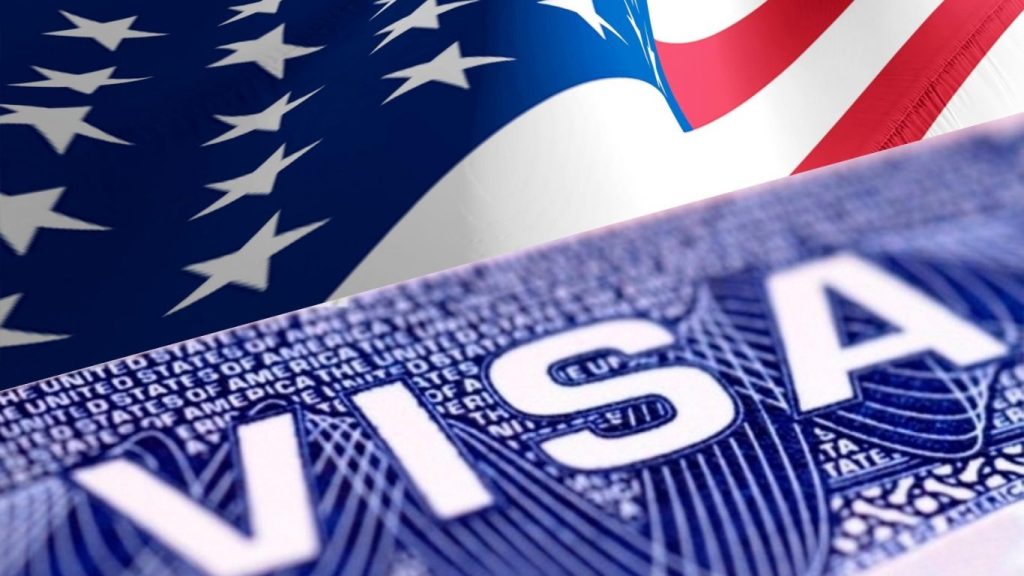US Revokes Visas for 40 International Students Over Traffic Violations


Nearly 40 international students living in the United States have had their visas unexpectedly revoked.
According to experts and supporters, the U.S. government based its decision on minor violations such as traffic infractions.
Many see this move as part of a broader immigration agenda by the Trump administration, targeting both migrants and educational institutions.
The action has left numerous students in shock, creating fear and uncertainty about what lies ahead.
One student involved in the incident, Lisa from the University of Wisconsin, Madison, was about to graduate in a month when she received a sudden notification, as reported by The Guardian UK.
“ISS is writing to inform you that your SEVIS record was terminated,” the message read. SEVIS refers to the Student and Exchange Visitor Information System run by the U.S. Department of Homeland Security.
Initially, Lisa believed the message was a scam. But after researching online and reading posts from other students, she realized she was now “out of status,” along with several other international students.
The reason was a small traffic violation from the previous year. She had received two tickets and was fingerprinted after attending court.
Once a student’s SEVIS record is closed, they typically have only 15 days to exit the U.S. Staying beyond that period could lead to deportation or a ban from reentering.
Other international students at institutions like Stanford, UCLA, UC San Diego, Ohio State, and the University of Oregon were also impacted, The Guardian UK reports.
A common pattern emerged among the affected students. They had all received traffic citations, appeared in court, and been fingerprinted, and they were unaware that their visa eligibility would be jeopardized.
To support each other, students compiled a shared spreadsheet, collecting personal accounts from more than 50 universities.
Even students who had not committed crimes—or had charges dismissed—still received SEVIS letters labeling them with “criminal records.”
Most of these visa terminations took place on April 4. This followed a statement made on March 27 by U.S. Secretary of State Marco Rubio.
“Every time I find one of these lunatics, I take away their visas,” Rubio had said. He justified the action as a matter of national security.
However, immigration attorneys argue that such a mass cancellation of visas is unprecedented.
“Students weren’t given any chance to explain their situation,” said Shenqi Cai, an attorney from Lashine Law, located in California.
“They were terminated under one broad directive, seemingly triggered by automated screenings that don’t account for state-by-state differences in legal definitions.”
Cai also pointed out that around 90% of the affected students had previously been fingerprinted, even when the charges were dropped or trivial.
“Fingerprinting alone should not equate to a criminal record,” she clarified.
The fallout for students has been severe.
One Chinese student named David, who was working in the U.S. on Optional Practical Training (OPT), suddenly lost his employment rights. His company is trying to relocate him to Canada, but the limited 15-day window to leave the U.S. poses a major challenge.
Another student named Bill was cited for driving with an expired license. His legal case remains ongoing. But now he’s caught in a difficult position—he has to attend court, yet remaining in the country might lead to detention.
Most universities have merely told students to seek help from immigration attorneys. While some may offer reduced fees, the legal process is still expensive.
“The dust of history falls on me, and it becomes a mountain,” said Bill.
As concerns rose, more than 300 students joined an urgent Zoom session hosted by federal immigration lawyer Brad Banias.
“It’s not a legal move; it’s a political one,” Banias stated during the call. “They’re criminalizing parking tickets.”
Lisa is now uncertain about what lies ahead. Her graduation, career, and graduate school dreams are all at risk.
“Worst case, I don’t graduate. I go home and start college again. Four more years. And then what?” she said.
This abrupt crackdown on visas has caused widespread alarm. It impacts not just students but suggests a stronger immigration push from the Trump administration targeting universities as well.
“This isn’t just about students,” Banias emphasized. “It’s about the message the government is sending: that no one is safe.”









